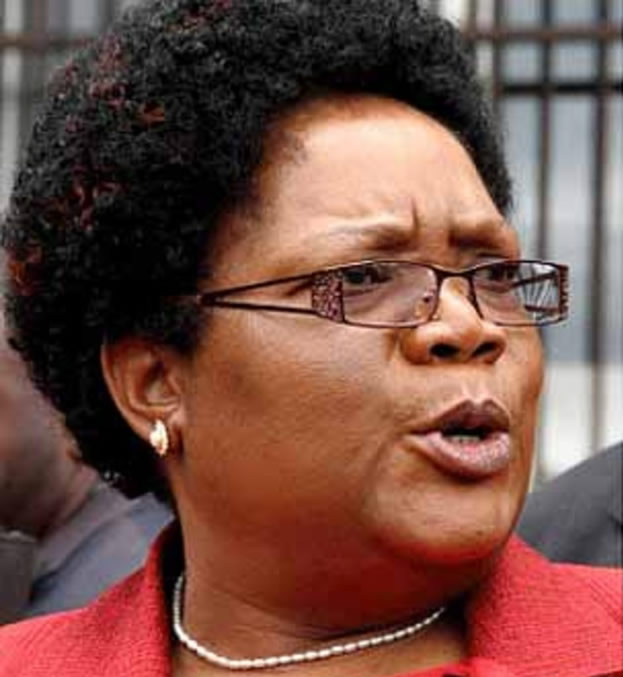‘Blair’s Iraqi war case unjustifiable’

LONDON. — Tony Blair overstated the threat posed by Saddam Hussein, sent ill-prepared troops into battle and had “wholly inadequate” plans for the aftermath, the UK’s Iraq War inquiry has said.
Chairman Sir John Chilcot said the 2003 invasion was not the “last resort” action presented to MPs and the public.
There was no “imminent threat” from Saddam — and the intelligence case was “not justified”, he said.
Blair apologised for any mistakes made but not the decision to go to war. Prime Minister David Cameron, who voted for war in 2003, told MPs it was important to “really learn the lessons for the future” and to improve the workings of government and how it treats legal advice.
And he added: “Sending our brave troops on to the battlefield without the right equipment was unacceptable and, whatever else we learn from this conflict, we must all pledge this will never happen again.”
Labour leader Jeremy Corbyn — who voted against military action — said the report proved the Iraq War had been an “act of military aggression launched on a false pretext”, something he said which has “long been regarded as illegal by the overwhelming weight of international opinion”.
A spokesman for some of the families of the 179 British service personnel and civilians killed in Iraq between 2003 and 2009 said their loved ones had died “unnecessarily and without just cause and purpose”. He said all options were being considered, including asking those responsible for the failures identified in the report to “answer for their actions in the courts if such process is found to be viable”.
In a statement to the media, his voice at times cracking with emotion, the former Labour prime minister said the decision to commit troops was the “most agonising and momentous” decision in his decade as prime minister, adding that he would “carry it with me for the rest of my days”.
“I feel deeply and sincerely in a way that no words can properly convey the grief and sorrow of those who lost ones they loved in Iraq — whether our armed forces, the armed forces of other nations or Iraqis.
“The intelligence assessments made at the time of going to war turned out to be wrong, the aftermath turned out to be more hostile, protracted and bloody than ever we imagined . . . and a nation whose people we wanted to set free from the evil of Saddam became instead victims of to sectarian terrorism.
“For all of this, I express more sorrow, regret and apology than you may ever know or can believe.”
But he was defiant on the central decision to go to war, saying: “there were no lies, Parliament and Cabinet were not misled, there was no secret commitment to war, intelligence was not falsified and the decision was made in good faith”.
In a two hour news conference he said he would never agree that those who died or were injured in Iraq “made their sacrifice in vain” as they had played their part in “the defining global security struggle of the 21st century against the terrorism and violence which the world over destroys lives, divides communities”. Blair said the US would have launched an invasion “either with or us or without us”, adding: “I had to decide. I thought of Saddam and his record, the character of his regime. I thought of our alliance with America and its importance to us in the post 9/11 world and I weighed it carefully with the heaviest of hearts.”
He was PM from 1997 to 2007, conceded that intelligence on Iraq’s weapons had “turned out to be wrong” and the invasion had destabilised Iraq but said he still believed the country was “better off” without Saddam, comparing it with the situation in Syria where the decision had been taken not to intervene.
He also said he should have “disclosed” the attorney general’s legal advice to the Cabinet on the eve of war — but he defended his close relationship with President Bush, saying: “we are better to be strongly onside with the US”, arguing that it was “better for our own security”.
The report, which is 2.6 million words long, does not make a judgement on whether Blair or individual ministers were in breach of international law. But Sir John, the ex-civil servant who chaired the inquiry, did not pull his punches when criticising decisions made in the run up to war and in the aftermath.
He described the Iraq War as an intervention that went “badly wrong” with consequences still being felt to this day. He had harsh criticisms for UK military commanders, who the report says had made “over-optimistic assessments” of their capabilities which had led to “bad decisions”. But in a statement at the launch of the report, he criticised the way the need for military action was presented to the public and MPs by Mr Blair and his ministers.
“The judgements about the severity of the threat posed by Iraq’s weapons of a mass destruction — WMD — were presented with a certainty that was not justified,” he said. “Despite explicit warnings, the consequences of the invasion were underestimated.” — BBC.








Comments